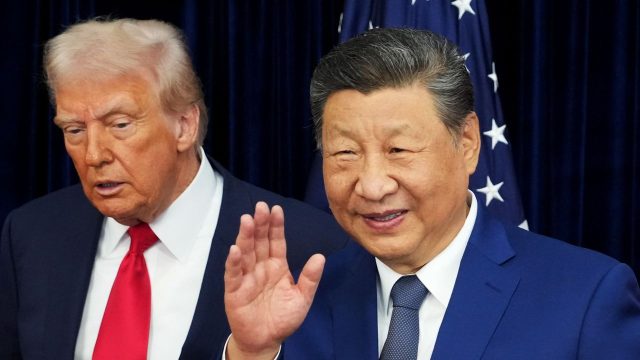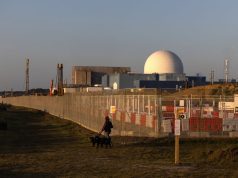
Donald Trump was in a “buoyant mood” as he flew back from his tour of Asia last week, said Rob Crilly in The Telegraph. “Air Force One was packed with gleaming gifts – a crown, a golf putter, a Nobel Peace Prize nomination.” On board, the US president boasted about the billion-dollar investment deals he’d struck with Vietnam, Thailand, Cambodia and Malaysia during a visit in which he’d broken into a dance alongside rainbow-clad performers in Kuala Lumpur and grooved to “Y.M.C.A.” on a US aircraft carrier in Japan.
But Trump’s biggest prize, said Mary Dejevsky in The Independent, was what he called an “amazing” meeting – a “12 out of 10” – with China’s President Xi Jinping, held on the sidelines of a summit in South Korea, where the two leaders declared a truce. There won’t be an all-out trade war between the world’s two biggest economies, “at least not yet”. For that alone, we can all “breathe a small sigh of relief”.
Trump was beaming when he announced the agreement, said Ian Williams in The Spectator. But “on closer inspection, it is all rather underwhelming”. US tariffs on China, which at their peak had been 154%, will be cut to an average rate of 45%. In return, China will resume buying soybeans from American farmers, and pause its latest curbs on the export of rare-earth minerals for one year. In other words, said The Times, for all Trump’s tariff theatrics and bluster, US-China trade relations are right back to where they started when he reentered the White House.
The real-estate mogul likes to “crow” about his deal-making skills, said Nicholas Kristof in The New York Times. In reality, he has “bungled” the most important bilateral trading relationship in the world today. Trump “badly miscalculated” when he rashly announced “liberation day” tariffs on China in April.
His aim was to punish Beijing and reduce the US trade deficit; but he forgot that the Asian superpower now holds the whip hand in such negotiations. China can buy US goods, including soybeans, elsewhere, and it is “the Opec of rare-earth minerals”: it controls some 90% of the world’s supply of these elements, which are used in everything from cars to phones to military equipment.
Xi was always going to weaponise this “near-monopoly” to force a whimpering US back to the table. And now, the Chinese leader “sees” the US’ weakness, and will use it to induce “compliant behaviour” on major issues such as Taiwan. The US hasn’t just lost a trade war, but “a chunk of [its] global credibility and influence for years to come”.
US president wanted to punish Beijing, but the Asian superpower now holds the whip hand






